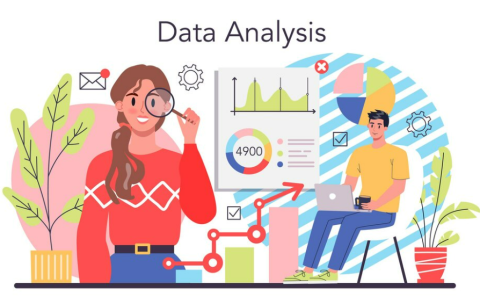Global Mining Operations and Management
What you'll learn
Advanced Software Development for Business Applications
What you'll learn
Supply Chain and Logistics in Manufacturing
What you'll learn
Data Analysis and Interpretation
What you'll learn
Banking and Financial Services Management
What you'll learn
Strategic Thinking and Planning
What you'll learn
Leadership in Educational Management and Policy
What you'll learn
Introduction to Critical Thinking
What you'll learn
Thriving in the Gig Economy: A Comprehensive Guide for MBA Professionals
What you'll learn
Customer Relationship Management and Engagement
What you'll learn
Advanced Software Development for Business Applications
What you'll learn
Supply Chain and Logistics in Manufacturing
What you'll learn
Data Analysis and Interpretation
What you'll learn
Banking and Financial Services Management
What you'll learn
Strategic Thinking and Planning
What you'll learn
Leadership in Educational Management and Policy
What you'll learn
Introduction to Critical Thinking
What you'll learn
Thriving in the Gig Economy: A Comprehensive Guide for MBA Professionals
What you'll learn
Customer Relationship Management and Engagement
What you'll learn
Revolutionizing the Primary Sector: Sustainable Strategies and Innovative Approaches for MBA Professionals
₹390.00₹700.00
Revolutionizing the Primary Sector: Sustainable Strategies and Innovative Approaches for MBA Professionals
What you'll learn
Featured Courses
Navigating Careers in the Secondary Sector: Strategies and Insights
Introduction: The secondary sector of the economy, encompassing industries that …
₹511.00₹700.00
Navigating Careers in the Secondary Sector: Strategies and Insights
What you'll learn
Mastery in the Tertiary Sector: Innovating Service Industries in a Dynamic Global Economy
Welcome to “Mastery in the Tertiary Sector: Innovating Service Industries …
₹440.00₹750.00
Mastery in the Tertiary Sector: Innovating Service Industries in a Dynamic Global Economy
What you'll learn
Navigating the Quinary Sector: High-Level Decision Making and Human-Centric Services in Global Economies
Welcome to “Navigating the Quinary Sector: High-Level Decision Making and …
₹410.00₹700.00
Navigating the Quinary Sector: High-Level Decision Making and Human-Centric Services in Global Economies
What you'll learn
Mastery in the Quaternary Sector: Information Services and Knowledge-Based Economies for Tomorrow’s MBA Leaders
Welcome to “Mastery in the Quaternary Sector: Information Services and …
₹495.00₹750.00
Mastery in the Quaternary Sector: Information Services and Knowledge-Based Economies for Tomorrow’s MBA Leaders
What you'll learn
Navigating the Secondary Sector: Industrial Innovation and Operational Excellence for MBA Aspirants
Welcome to “Navigating the Secondary Sector: Industrial Innovation and Operational …
₹490.00₹710.00
Navigating the Secondary Sector: Industrial Innovation and Operational Excellence for MBA Aspirants
What you'll learn
Revolutionizing the Primary Sector: Sustainable Strategies and Innovative Approaches for MBA Professionals
Welcome to “Revolutionizing the Primary Sector: Sustainable Strategies and Innovative …
₹390.00₹700.00
Revolutionizing the Primary Sector: Sustainable Strategies and Innovative Approaches for MBA Professionals
What you'll learn
Thriving in the Gig Economy: A Comprehensive Guide for MBA Professionals
Welcome to “Thriving in the Gig Economy: A Comprehensive Guide …
₹390.00₹750.00
Thriving in the Gig Economy: A Comprehensive Guide for MBA Professionals
What you'll learn
Introduction to Critical Thinking
Brief Introduction: The course “Introduction to Critical Thinking” is designed …
₹440.00₹750.00
Introduction to Critical Thinking
What you'll learn
Popular Topics
Popular Instructors
All Career Vista Courses
Select Categories
Filter by
Instructor
Language
Navigating the Gig Economy: Opportunities and Strategies
Navigating the Gig Economy involves understanding and leveraging the growing …
₹1,500.00₹3,000.00
What you'll learn
Cultural and Arts Management
Cultural and Arts Management is a specialized field focusing on …
₹1,400.00₹3,000.00
What you'll learn
Thriving in the Gig Economy: A Comprehensive Guide for MBA Professionals
Welcome to “Thriving in the Gig Economy: A Comprehensive Guide …
₹390.00₹750.00
What you'll learn
Data Analysis and Interpretation
Brief Introduction: The course “Data Analysis and Interpretation” is designed …
₹490.00₹750.00
What you'll learn
Problem Analysis and Solution Development
The course “Problem Analysis and Solution Development” is designed to …
₹339.00₹600.00
What you'll learn
Introduction to Critical Thinking
Brief Introduction: The course “Introduction to Critical Thinking” is designed …
₹440.00₹750.00




















